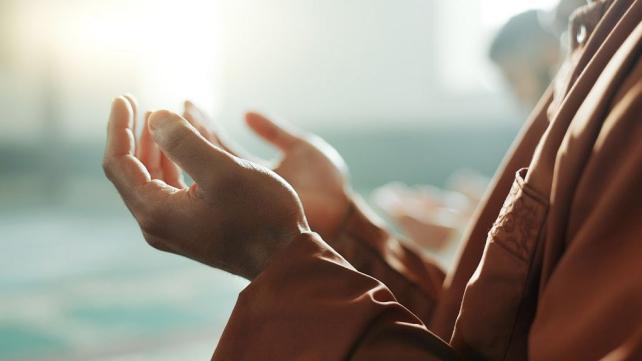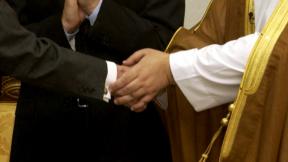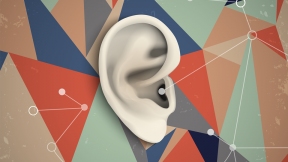
As Thanksgiving nears, it is crucial to recognize the importance of expressing gratitude for things in your life. Though not a significant holiday in Islam, Muslims are encouraged to give thanks to both God and other people regularly.
Simply saying Alhamdulillah or thanks to Allah for small things in your daily life strengthens your faith and brings you closer to Him. Some duas or daily supplications are taught by Prophet Muhammad, peace and blessings be upon him, and teach us to show gratitude. For example, after waking up, Muslims are encouraged to say:
Alhamdulillahilladhee ahyana ba'da ma amatana wa ilayhin-nushoor.
“All praise is to Allah who gave us life after taking it and to Him we will return.”
This shows how important it is to show gratitude to Allah, even for something as small as waking up in the morning.
Many negative things are happening in the world, which sometimes may discourage us from expressing our gratitude to God. The situation in Palestine, for example, can sadden Muslims. However, no matter how bad the world can be, there is always something to be grateful for. Being grateful after enjoying a good meal or upon finishing an assignment are all small things that one can say thanks for.
It is essential to recognize that nothing happens without God’s decree, which is stated in numerous Quranic verses. Allah says in the Quran:
“Say ‘nothing will ever befall us except for what Allah has destined for us. He is our Protector.’ So in Allah let the believers put their trust.”
(Surah At-Tawbah, :9:51)
The Best Examples
Being grateful helps us to be optimistic and look at seemingly negative things in a different light. This allows us to find solutions to problems in our lives efficiently. Thankfulness is a quality that prophets possess, and we have many role models to follow. For example, Prophet Ibrahim, peace be upon him, is described as being thankful:
“Indeed, Abraham was a model of excellence: devoted to Allah, ˹perfectly˺ upright—not a polytheist—grateful for Allah’s favors. He chose him and guided him to the Straight Path.” (Surah An-Nahl, 16:120-121)
The wise man Luqman, may Allah be blessed with him, was also grateful:
“Indeed, We blessed Luqmân with wisdom, ˹saying˺, ‘Be grateful to Allah, for whoever is grateful, it is only for their own good. And whoever is ungrateful, then surely Allah is Self-Sufficient, Praiseworthy.’”
(Surah Luqman, 31:12)
Aisha said that Prophet Muhammad would often pray a lot at night. So much so that his feet would sometimes swell. When Aisha asked him why he prayed for so long if it hurt him, he replied:
“Should I not be a grateful servant of Allah?”
(Sahih Muslim)
So far, we have covered giving thanks to God. However, Muslims are encouraged to give thanks to people as well. Saying thank you to others is not only a healthy religious habit but also a way of being polite. Giving thanks to a person, no matter the scenario shows that you appreciate them, which makes them feel valued.
Prophet Muhammad said:
“Whoever does not thank people, does not thank Allah.”
(Narrated by at-Tirmidhi, Sunan Abi Dawud 4811)
Now that we have established how important expressing gratitude is, how can we express our gratitude more? For starters, saying thank you in a social setting can increase positivity for both parties. A habit I have implemented daily is to say Alhamdulillah when something good happens. No matter how small it may be, you should still thank God.
Additionally, remembering and building a habit of saying these daily supplications, like the one after waking up, is a massive step in getting closer to Allah. If it is hard to remember to express your gratitude verbally, it may help to write it down. Growing up, my family always had the daily duas printed and taped to the wall. This way, there was a visual reminder.
Here are some daily supplications that show gratitude:
Supplication after waking up:
Alhamdulillahilladhee ahyana ba'da ma amatana wa ilayhin-nushoor.
“All praise is to Allah who gave us life after taking it and to Him we will return.”
Dua after eating:
Alhamdulillahilladhee atamani hadha wa razaqanihi min ghairi hawli minni wa la quwwah.
“All praise is to Allah who has provided me with this food and sustained me with it while I have not any power or might.”
Dua for gratitude:
Alhamdulillahi ‘ala Kulli Hal. “Praise be to Allah in every condition.”
Dua thanking God for health:
Alhamdulillahilladhee ‘Afani. “Praise be to Allah Who gave me health.”
Expressing gratitude to God or toward others plays a significant role in Islam and helps us create a more positive attitude toward life. Despite the negative things that are happening in the world, whether globally or in our daily lives, taking a moment to appreciate the positive things can uplift our spirits and strengthen our faith. Gratitude is not only a form of worship but is also a way to spread kindness. By adding acts of thankfulness into our daily lives, such as saying “Alhamdulillah” or saying daily supplications, we learn to appreciate the little things.
Uthman Guadalupe is a Latino Muslim college student passionate about history. He is an assistant Brazilian Jiu-Jitsu coach and freelance illustrator. He is fluent in Spanish and lives with his family in Maryland where he also enjoys playing video games and binging shows.








Add new comment